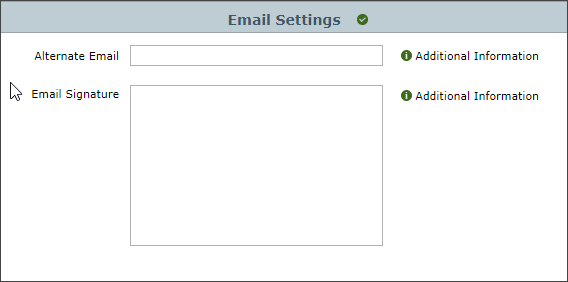Personal Preferences
In this part of the system you can set your own personal preferences. For example you can indicate that you want your default items view to be "List View with Images" or the "Split View". If you are responsible for purchasing, you might set your default Sort to be by vendor. Read through the information below so you know how to use these preferences to make working with DesignSmart as efficient as possible.
How to Get To Personal Preferences
To get to Personal Preferences, click on the hamburger icon in the top right of most pages, then on System Preferences.
This will take you to Personal Preferences if you are not an Administrator.
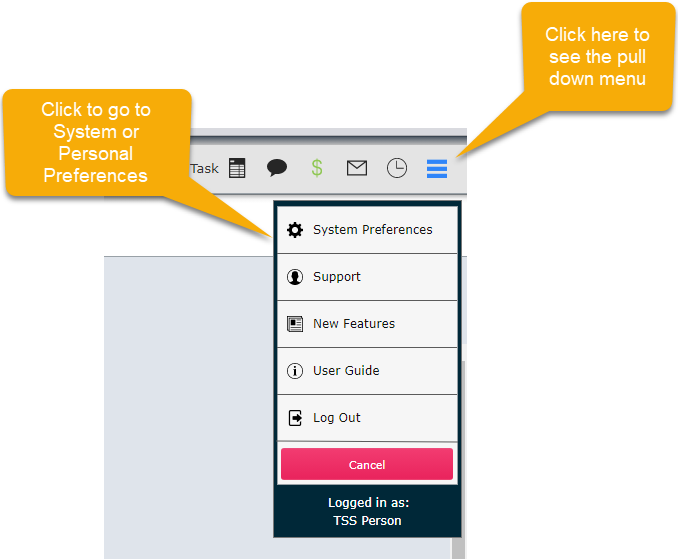
If you are a System Administrator you will be taken to the System Preferences layout. If you are not a System Administrator you will be take to the Personal Preferences screen below.
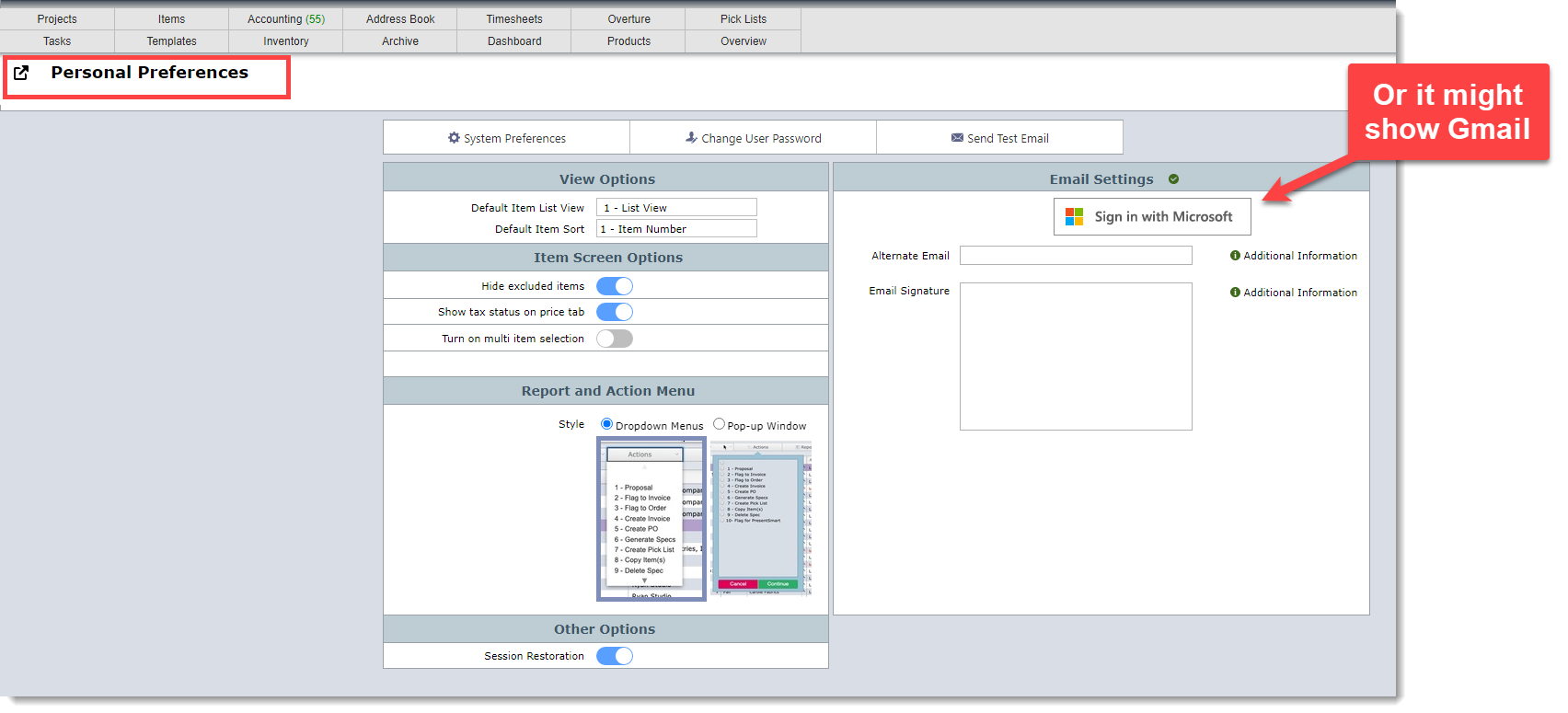
Button Bar
| 1. System Preferences | This will take you to the System Preferences area if you are authorized to access this area |
| 2. Change User Password | This will allow you to change your password. (If you forget your password, your System Administrator will have to assign you a new one. You can click this button if you need to change it to something more familiar.) |
| 3. Change Email Password | You will only see this button if your firm is not set up to use Outlook or Gmail. |
| 4. Send Test Email | You can click this button to send a test email to confirm your email settings are working. |
| 5. Test My Latency | This button has been removed. |

Personal Preference Settings
In this part of the system you can set your own personal preferences. For example you can indicate that you want your default items view to be "List View with Images" or the "Split View". If you are responsible for purchasing, you might set your default Sort to be by vendor. Read through the information below so you know how to use these preferences to make working with DesignSmart as efficient as possible.
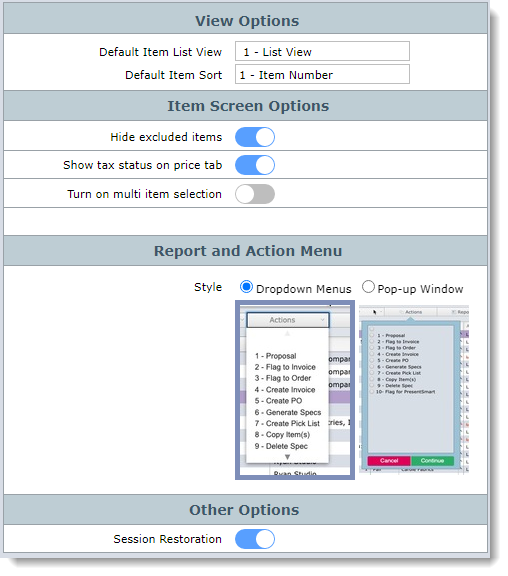
View Options
| 1. Defaults List View | You can set your preferred "List View" when you click on Items in the menu bar. This is a feature you will want to come back and explore as you get to learn the system more. |
| 2. Default Item Sort | This will set how the items are sorted when you click on the Items in the menu bard. Most people will leave this set to Item Number. Persons who work exclusively in purchasing will opt to set this to Vendor. |
Item Screen Options
| 1. Hide excluded items | This allows you to indicate if you want to view or not view the "excluded" items when you click on the Items in the menu bar. Excluded items are denoted in red strike-through text. |
| 2. Show tax statues on price tab | This allows you to see what merchandise, markups and subcharges are being taxed on the Item Detail View when viewing the pricing tab. |
| 3. Turn on multi-item selection | Setting this to Yes allows you to select a range of items on the Items List View. For information how to use this feature, click here. |
Report and Action Menus
| 1. Style | Here you can select the menu type that will appear on the Item List Views and the Item Detail for for the Report and Actions menus. Most persons who use a browser will opt for the "Pop-up Window" choice while those who use FileMaker Pro might prefer the "Dropdown menus" options. It is best to test each option to determine your preference. |
Other Options
| 1. Session Restoration | If this switch is on (blue), then when you log into DesignSmart, you will be asked if you want to return to the screen you were last on when you exited the program. |
Personal Email Settings
Step 1 On the Personal Preferences layout, if you see the "Sign in with Microsoft" or "Sign in with Google", then click on that logo.
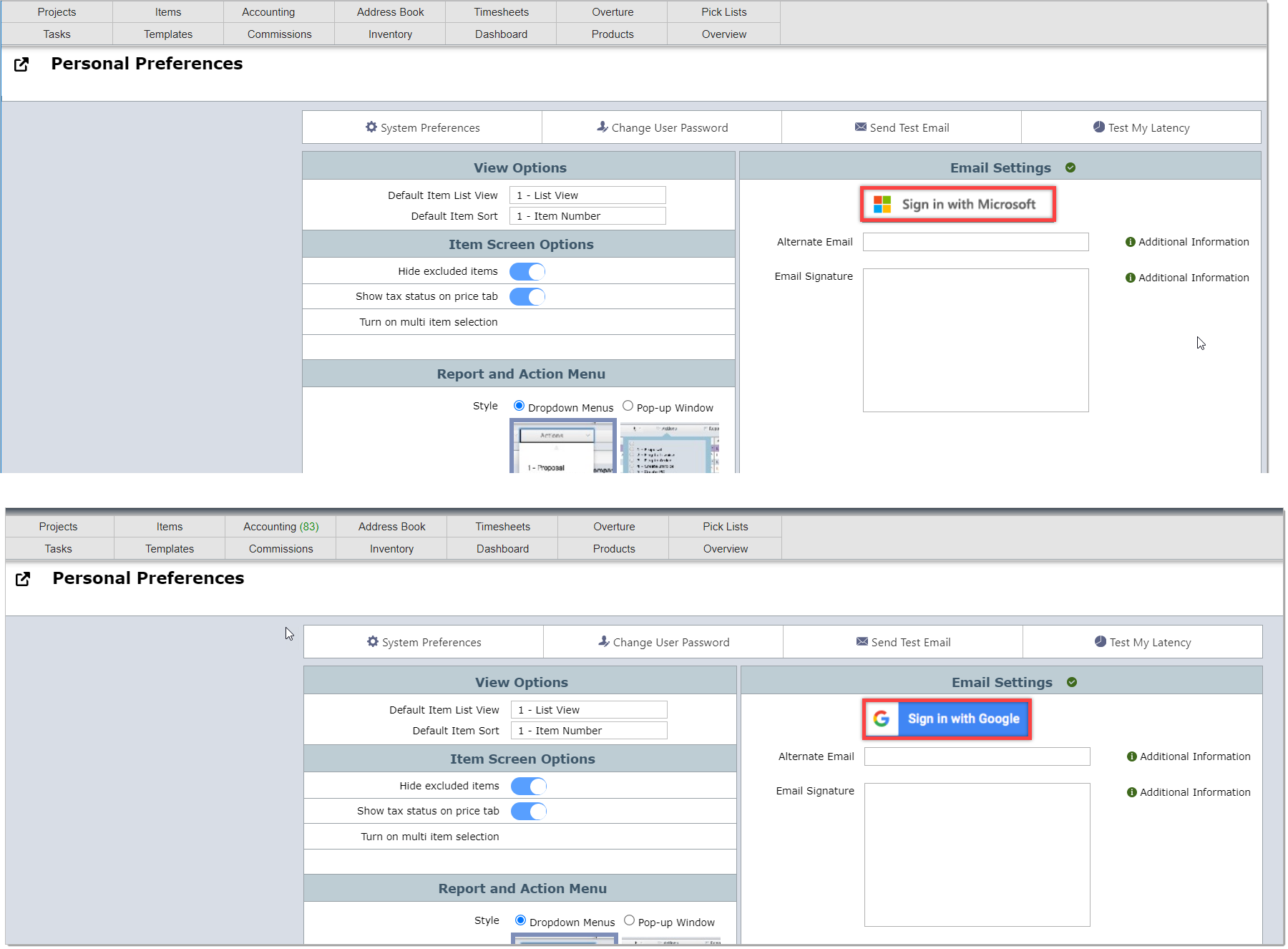
Step 2 You will need enter your Outlook or Gmail email address and password. Then in the Gmail or Outlook confirmation screen, they will need to give DesignSmart permission to link to the email system.
Personal Email Settings
Please refer to the screen shot below.
| 1. Alternate Email | Only fill this when instructed to by your System Administrator. You will be told to enter your Gmail or other email address. |
| 2. Enter your Email Signature | Add your email signature in the Email Signature box below. |
| It can only be text and cannot include any logos or font styling. |
| If your firm is configured to use individual emails, then you will see the "Test Sending Email" button that you can use to test to confirm if your email address is working correctly. |
